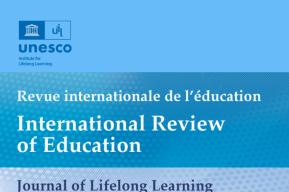News
Italian version of UNESCO report on the futures of education sparks reflection in parliament

The 2021 UNESCO report from the International Commission on the Futures of Education presents insights into transitions currently facing societies, including digital technologies, climate change, the decline of democracy and social polarization and the uncertain future of work. The session at the Parliament was an opportunity to explore these transitions in the Italian context.
Sobhi Tawil, Director of the Futures of Learning and Innovation Division at UNESCO, whose team acted as Secretariat to the International Commission, gave a keynote address on the challenges and opportunities of renewing the social contract for education. Underscoring that we need to rebalance our relationships with each other, with the planet and with technology, he stated that we need a new sort of education for two reasons: to address the persistence of educational exclusion and to address the unsustainable and unjust ways in which we are living, which exacerbate the crises and compound entrenched prejudices. As well as drawing out the key points of the report, he emphasized the importance of not only reflecting on what and how we learn but also the fundamental question of why we learn and for what purpose. This is fundamental to the understanding of a new social contract for education.
Hope for the future for the next generation
Opening the discussion, the Vice-President of the Chamber of Deputies, Anna Ascani, welcomed the report, saying that it was an opportunity to renew ideas in education, even if it set an ambitious goal. She underscored that the school system in Italy was going through a “delicate phase” in which one in four children was experiencing educational poverty, one of the highest rates in Europe. However, their responsibility is to “help the next generation have hope for the future.” Furthermore, she stressed that education was a common good, important for the social cohesion of the country by instilling a sense of civic responsibility in children, youth and adults through interdisciplinary and intercultural learning. She recalled previous UNESCO landmark reports in education and encouraged further national dialogue following the publication of this latest report.
Paola Frassinetti, the Undersecretary of State of the Ministry of Education and Merit, elaborated on some of the priorities for the education sector in Italy, saying that the report had come at an opportune moment in history. She underscored that, particularly following the COVID-19 pandemic, it was important to guarantee the right to education, through lifelong learning and higher education. Priorities in the country include reinforcing science, technology, engineering and mathematics subjects, reforming technical and vocational training and developing strategies to use digital technologies in education. She stressed that lifelong learning is important for skills development due to the changing needs of the labour market but also emphasized the broader role of education in building societies, singling out the particular importance of civic education, especially in the age of digital technologies. Frassinetti further highlighted the need to reinforce social and emotional learning teacher training in psychology and pedagogy.
The Secretary General of the Italian National Commission for UNESCO, Enrico Vicenti, added that the report called for alliances within the country to reinforce education. He indicated the influence that the report had had at the international level, particularly at the 2022 Transforming Education Summit convened by the UN Secretary-General, António Guterres, and other UNESCO initiatives linked to greening education and cultural and arts education. Furthermore, the 43 UNESCO Chairs in Italy are contributing to renewing education by enlarging the themes and concepts of education and scientific research.
Domenico Simeone, the UNESCO Chairholder who initiated the translation of the report into Italian, remarked upon the symbolism of such a discussion in the library at the heart of government in opening the process for a societal debate. He further emphasized that the call for a new social contract for education required deepening the conversation with all stakeholders in civil society, universities and schools, and that was why the translation was so vital in opening up such critical reflection. The 2021 UNESCO report from the International Commission on the Futures of Education is not a blueprint for action but is, instead, a call for dialogue to renew education and for a new research agenda. In concluding the session, following several further interventions, he called for all concerned parties to embark on reflection, dialogue and research, heeding the call of the International Commission on the Futures of Education to reimagine our futures together.
Watch the recording of the event at the library of the Chamber of Deputies
Access UNESCO’s flagship report Reimagining our Futures Together: a new social contact for education









